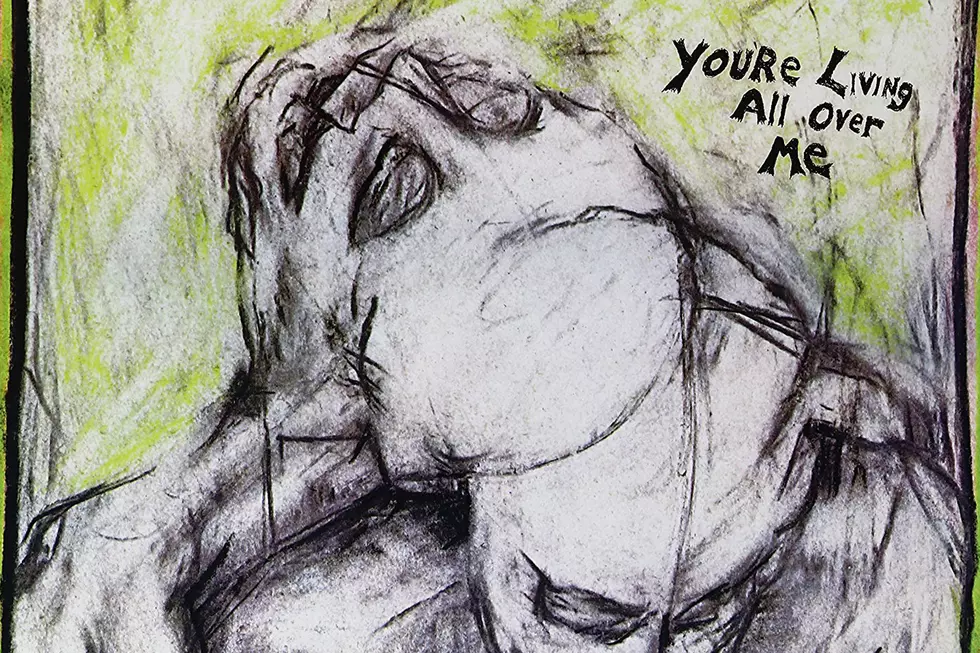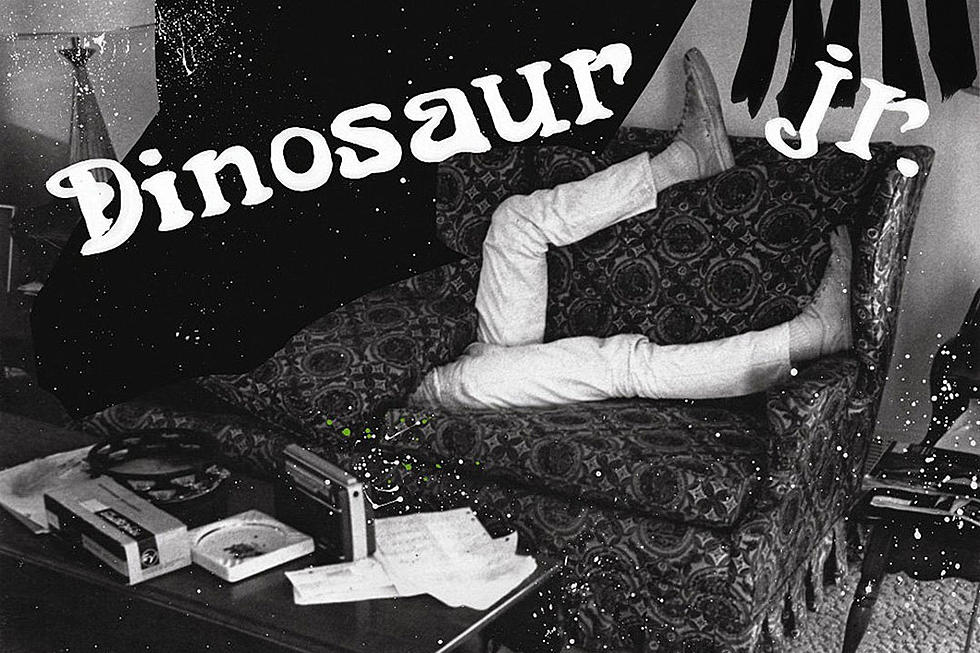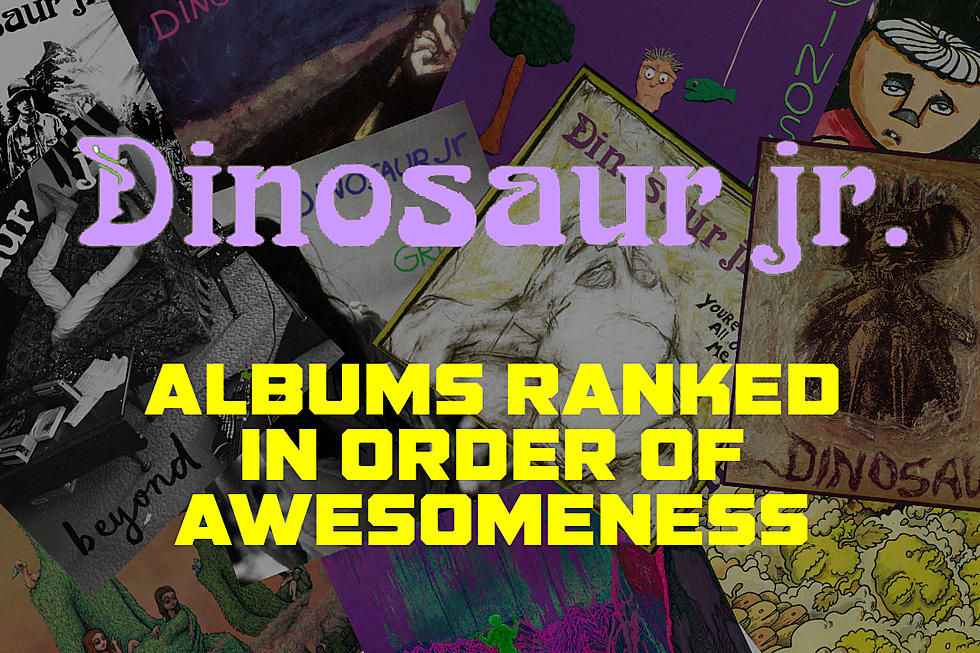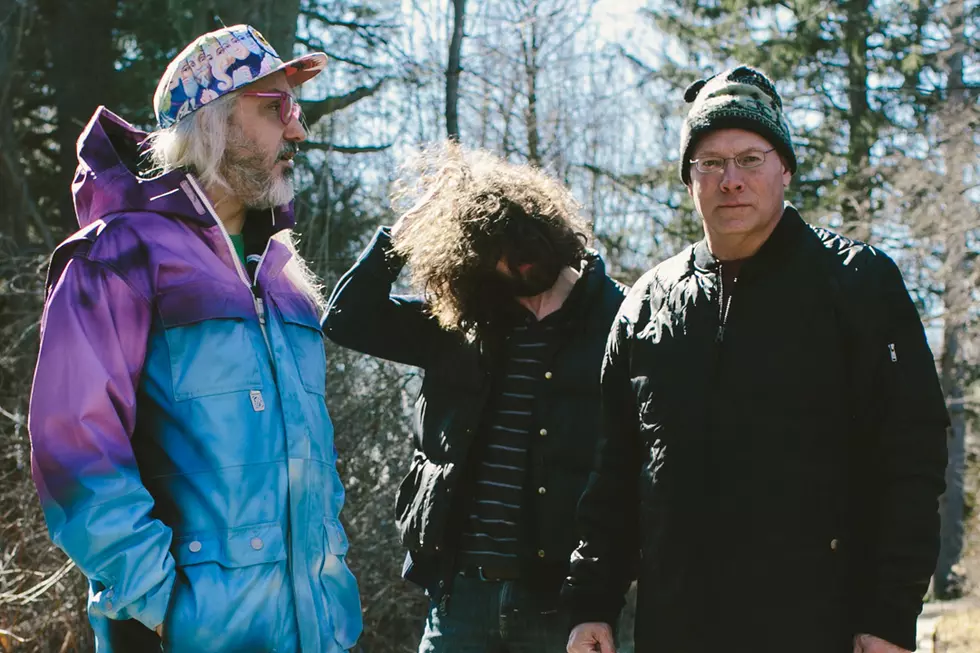20 Years Ago: ‘Hand It Over’ Pushes Dinosaur Jr. to Extinction
By 1997, Dinosaur Jr. was drastically altered from the band’s original incarnation. Bassist Lou Barlow had been fired before the group had been signed to a major label in 1990. Drummer Emmett “Murph” Murphy had departed after a lackluster stint on the ’93 Lollapalooza tour. Singer-guitarist J. Mascis was the last man standing.
On some of Dinosaur Jr.’s ’90s recordings, Mascis was the only person featured. But it’s tough to play concerts as a power trio if you’re only one guy. Eventually, he replaced the trio’s founding members with Mike Johnson on bass and George Berz on drums. Mascis continued to have a stranglehold on the band creatively, so Dinosaur Jr.’s sound – loud, distorted with disaffected vocals from its frontman – remained steady through tumultuous times.
Newly signed to Sire Records, Mascis released a torrent of music in the early ’90s and put out three Dinosaur Jr. albums in the space of four years. At the height of alternative rock’s popularity, Dinosaur Jr. got played on the radio, the albums hit the charts and MTV even embraced the band (with a little help from Spike Jonze). In crafting his group’s seventh album, Mascis took a little more time.
Along the way, he brought in My Bloody Valentine’s Kevin Shields as an “honorary member” during the sessions for Hand It Over. Mascis and Shields had been tour mates and friends for years, so it seemed like a natural pairing, sonically.
“I remember he’d plug in different pedals and I’d play until I liked the sound, and then we’d try something with that sound,” Mascis told Rolling Stone. “His studio in England wasn’t too easy to work in at the time. It was weird, like a haunted house.”
Although the Dinosaur Jr. frontman thought the experience was strange, he did like the results. Mascis would later recall that he felt he was finding new ways to be excited about his band, his songs and his music.
“I definitely felt psyched again,” he told Noisey. “I really liked the album, but then that was the point where the major label gave up on it and didn’t even tell anyone it came out. We went on tour and people didn’t even know it had been released. It was kind of depressing. But I really liked the album. It was just hard to tour because they basically didn’t do anything to promote it.”
Mascis recalls the troubles with Sire beginning when he handed over Hand It Over, on which he had written, sung, played a whole lot of instruments, produced and even created the cover art. He was clearly attached to this album, but the label executives were not impressed.
“I went to a meeting and heard the classic thing I never thought I’d hear, that I thought was just the silliest, stupid thing you used to hear if you go to a record company: ‘I don’t hear a single,’” Mascis said. “I couldn’t believe I’d actually heard that coming out of somebody’s mouth. I knew that was the end for sure – like, are you seriously saying that right now? It’s just such a cliché.”
Mascis stuck to his creative guns and he claimed the label punished Dinosaur Jr. with a lack of support for the record. Hand It Over came out on March 25, 1997 to little fanfare. The record got some positive reviews, but stalled at No. 188 on the Billboard charts (a long way from the success Dinosaur Jr. had just a few years prior).
The band toured to promote Hand It Over, but to middling results. A strange occurrence allowed this version of Dinosaur Jr. to play one of its final gigs on The Jenny Jones Show (on a show titled “Grow Up! You’re Too Old to Party with Your Daughter”). Mascis put an end to the band by the end of 1997. It wasn’t something he wanted to do.
Watch Dinosaur Jr. on 'The Jenny Jones Show'
“We were dropped,” he told Magnet. “We were supposed to do another album.”
In 2005, Mascis would reform Dinosaur Jr. with Barlow and Murph. The trio recorded its first reunion record a decade after Hand It Over and has been going strong ever since. Mascis has been enthusiastic about the band’s current work, but he still has a soft spot for what once looked like the last Dinosaur Jr. album.
“I really like that record. I like the songs,” he said in 2016. “I guess I feel bad for it too because a lot of people don’t know it. I’ll play some song and they’re like, ‘What’s that from?’ It’s the underdog.”
50 Frame-Worthy Alternative Album Covers from the 21st Century
More From Diffuser.fm









